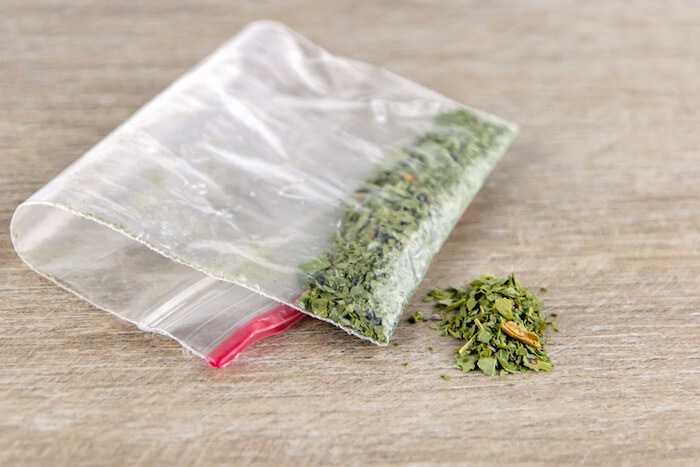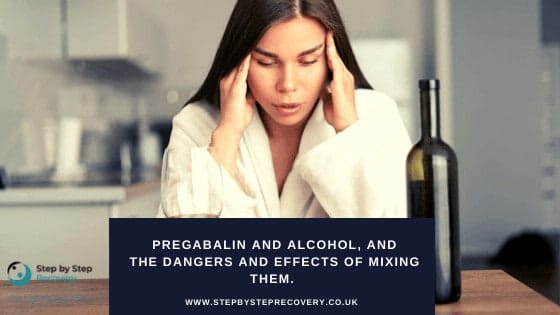Updated November 2023
The side effects of Pregabalin (Lyrica) and the danger of addiction are being experienced by more people as ways to use this drug recreationally have become better known. A prescription-only medicine, Pregabalin is part of a group of drugs called anticonvulsants (antiepileptic or antiseizure drugs). Used “off label” to treat various health conditions such as fibromyalgia and hemiplegic migraines, since 2015, there has been a significant increase in doctors giving out Pregabalin prescriptions in the UK.
Due to the sedative and euphoric side effects of Pregabalin, the danger of addiction is now a serious concern among addiction treatment centres, GPs, and many other members of the medical profession. Read on to learn everything you need to know about potential Pregabalin side effects, withdrawal symptoms, and Pregabalin addiction treatment.
What is Pregabalin Used For?
Initially, the FDA approved Pregabalin for the treatment of epilepsy. In the UK, Lyrica is the generic version of Pregabalin, and GPs can prescribe this medication for treating any health condition. Widely prescribed for treating neuropathic pain as an alternative to opioid painkillers, it is also prescribed for the treatment of generalised anxiety disorder (GAD). This has led to a significant increase in the number of prescriptions given out by GPs in the UK and subsequent abuse of this drug due to Pregabalin side effects.
Available in 25mg to 300mg tablets, capsules, and liquid form, the maximum prescribed Pregabalin dose is 600 mg, spread over 24 hours in two to three doses. When taken recreationally, the Pregabalin dose used at one time is typically between 600 mg and 3,000 mg.
Pregabalin Side Effects
Pregabalin side effects make this drug a popular choice for recreational use. They are generally stronger the higher the dose and include:
- Feelings of relaxation
- Euphoria
- Dissociation
- Loss of inhibitions.
When high doses are taken in one go, there is a possibility of Pregabalin toxicity (poisoning, which can be fatal. You should always call 999 or go to your local A&E if you or someone you know has taken Pregabalin and experience any of the below symptoms:
- Loss of control of body movements
- Tremors
- Confusion
- Difficulty speaking
- Involuntary muscle contractions (twitching).
Side effects of Pregabalin can also occur even when it is taken as prescribed, although they tend to be mild and short-lasting.
Common physical side effects of Pregabalin include:
- Dizziness
- Drowsiness
- Dry mouth
- Weight gain
- Headaches
- Constipation
- Vomiting and nausea
- Insomnia
- Blurred vision
- Poor concentration
- Lack of coordination
- Swelling of hands and feet.
Rare serious side effects of Pregabalin include:
- Rashes, hives, or blisters
- Respiratory depression (breathing problems)
- Heart problems (including heart failure)
Psychiatric side effects of Pregabalin include:
- Suicidal thoughts and attempts
- Depression or anxiety (or these symptoms becoming worse)
- Agitation and irritability
- Aggression
- Panic attacks
- Mania (excessive energy and talking.)
- Hallucinations.
These Pregabalin side effects are more likely when it is taken recreationally in a high dose. If Pregabalin is being taken as prescribed and these side effects last longer than two weeks, it is usually gradually discontinued.
Pregabalin Addiction Treatment
Pregabalin addiction treatment can be accessed for free through your GP or your local NHS drug treatment service. The NHS does not have residential rehab facilities and only provides outpatient addiction treatment. Criteria for accessing funding through the NHS for treatment in a private residential rehab is extremely strict, and it can be a difficult and long process.
At Step by Step Recovery, we can sometimes offer same-day admissions. For no obligation, free advice, please complete our online assessment form or call our admissions team on 0800 170 1222.
To keep our fees as affordable as possible while still offering a high level of care and individual attention to each of our clients, we provide shared rooms at our residential rehab in Essex. Once you are admitted to our rehab, your addiction treatment for Pregabalin will normally begin with a medically assisted detox, and drugs are prescribed to alleviate withdrawal symptoms.
This is typically completed within three to five days. Following this, you will have access to addiction therapy, group meetings, and one-to-one counselling, among other activities, including trips to the beach and the cinema. We aim to help you learn new ways to cope with triggers and live a fulfilling life free from addiction. During your stay, your days are structured, and you will eat three meals in a communal dining room.
What is the Risk of Pregabalin Addiction?
A serious danger is the potential to become addicted to Pregabalin when it has been prescribed to treat a medical condition. Gradually increasing the amount you take, taking high doses, and regularly taking more than prescribed can help users feel relaxed and euphoric. The temptation to do this when you are in pain or feel anxious can be overwhelming, and consequently, it is very easy to become addicted without even realising it. Due to the high risk of abuse and dependence, the Medicines and Healthcare Regulatory Agency (MHRA) issued new scheduling requirements for Pregabalin (Lyrica) and Gabapentin (Neurontin). They require GPs and medical professionals to evaluate patients carefully for a history of drug abuse before prescribing Pregabalin and Gabapentin and observe patients for signs of abuse and dependence.
The side effects of Pregabalin also make it a desirable drug for people who are looking for a way to get “high” and don’t want to take illegal drugs. Because it is a prescription drug, it is illegal to sell it to someone without a prescription, but this does not prevent its sale by drug dealers and on the dark web. It’s also relatively easy to pay for a private online doctor consultation and pretend you have a health condition to obtain it legally on prescription for the purposes of selling or abusing it.
Because Pregabalin side effects tend to be mild and the danger of death from a high dose is less than from the abuse of drugs such as Oxycontin and Fentanyl, it’s often considered a safer drug to abuse. It’s also used to intensify the effects of alcohol and other drugs, such as opioids, and reduce the discomfort of heroin and opioid withdrawal symptoms. As of 1st April 2019, Pregabalin and Gabapentin have been controlled under the Misuse of Drugs Act 1971 as Class C substances.
What is the Risk of Death from Pregabalin (Lyrica)?
Pregabalin can cause death and has serious risks when taken in a high dose. Although death from Pregabalin toxicity (poisoning) is rare, when Pregabalin is taken recreationally with alcohol and SSRI antidepressants, fatality can result from respiratory depression. This is also a known side effect of Pregabalin when it is taken with opioids, such as Oxycontin, for recreational purposes.
Respiratory depression is a serious condition that occurs when lung function is compromised and there is insufficient oxygen in the blood. This makes breathing harder, which can be life-threatening if medical treatment is not received fast enough.
In February 2021, the Medicines and Healthcare Products Regulatory Agency (MHRA) issued the below warning about Pregabalin and severe respiratory failure.
“Pregabalin has been associated with infrequent reports of severe respiratory depression, including some cases without the presence of concomitant opioid medicines. Patients with compromised respiratory function, respiratory or neurological disease, renal impairment; those using concomitant central nervous system (CNS) depressants; and people older than 65 years might be at higher risk of experiencing these events, and adjustments in dose or dosing regimen may be necessary.”
Pregabalin Addiction and the Brain
Addiction to any substance is classified as a chronic brain disorder and causes changes in the circuits forming part of the brain’s reward system. Numerous research has shown that once a person is addicted, they are driven by their brain to continue using the substance.
Studies have analysed MRI brain imaging scans from people with drug addiction and found changes in the prefrontal regions of the brain that control the reward system and the region responsible for planning, decision-making, and impulse control. Over time, with repeated use, the unpleasant withdrawal effects of the substance leaving your system become more difficult to cope with.
The brain reward system wants to alleviate any discomfort or pain you are experiencing. Without the ability to make decisions based on long-term consequences, you cannot control your impulse behaviour and are driven to take more of the substance to alleviate the withdrawal symptoms. This is why the effect of withdrawal symptoms from addiction to Pregabalin can be the same as for class A drugs, such as heroin or cocaine.
Gabapentin vs Pregabalin Side Effects
Gabapentin and Pregabalin are both types of prescription drugs used to treat a range of medical conditions, including epilepsy, nerve pain, and mood disorders. They can both have some of the same side effects, with the most common being dizziness and drowsiness. However, out of the two drugs, the potential for addiction seems higher with Pregabalin.
Gabapentin and Pregabalin abuse potential is strongly linked to the sedative and euphoric side effects they produce. When discontinued, both drugs can cause withdrawal symptoms. Withdrawal from Pregabalin is usually worse when it is used over a long period, in high doses, for recreational use.
Managing Pregabalin Withdrawal Symptoms
When you stop taking Pregabalin, it can be difficult to manage withdrawal symptoms without medical support. The longer you take the drug and the higher the dose, the more severe your withdrawal symptoms are likely to be. Physical withdrawal symptoms typically begin around 12 hours after the last dose. Over the next couple of days, symptoms will usually become more severe.
Common Pregabalin withdrawal symptoms include:
- Extreme anxiety and depression
- Psychosis, including hallucinations
- Delirium (extreme confusion)
- Suicidal thoughts
- Headaches
- Excessive sweating
- Nausea and vomiting
- Stomach cramps
- Diarrhoea.
It is important to be aware that withdrawal symptoms from Pregabalin will differ from person to person, and you may not experience all of these symptoms.
FAQ: Pregabalin Side Effects and Dangers
Q: Can I drive on Pregabalin?
A: Pregabalin can slow your reflexes and make you tired and dizzy. When using Pregabalin for recreational use, you should never drive a car as you don’t know how it will affect you. If you take Pregabalin as prescribed, you may be able to drive and should speak to your GP.
Q: Can I drink alcohol with Pregabalin?
A: If you are not taking Pregabalin as prescribed or should not be taking it at all, you should avoid alcohol. Alcohol and Pregabalin increase the effects of each other, which means together, they can make you feel dizzy and drowsy and impair your ability to make sound decisions. This could result in dangerous and risky behaviour, injury, and even death. If you have been prescribed Pregabalin and are not using it as directed, you should speak to your GP about drinking alcohol.
Q: Can Pregabalin cause seizures?
A: Although Pregabalin is an antiseizure medication, side effects from Pregabalin especially when taken for recreational use in large doses, include seizures.
Q: How long do Pregabalin withdrawal symptoms last?
A: Acute physical withdrawal symptoms will generally last around three days. Psychological withdrawal symptoms typically last for several weeks but can last longer, depending on how much Pregabalin you have taken and how often.
Q: Is pregabalin a controlled drug?
A: Pregabalin is a Class C controlled drug and, it is illegal to possess it without a prescription in your name.
At Step by Step Recovery, we want to help individuals live a life free from addiction permanently. Please complete our online assessment form or call our free phone number at 0800 170 1222 to speak to a member of our understanding team.




